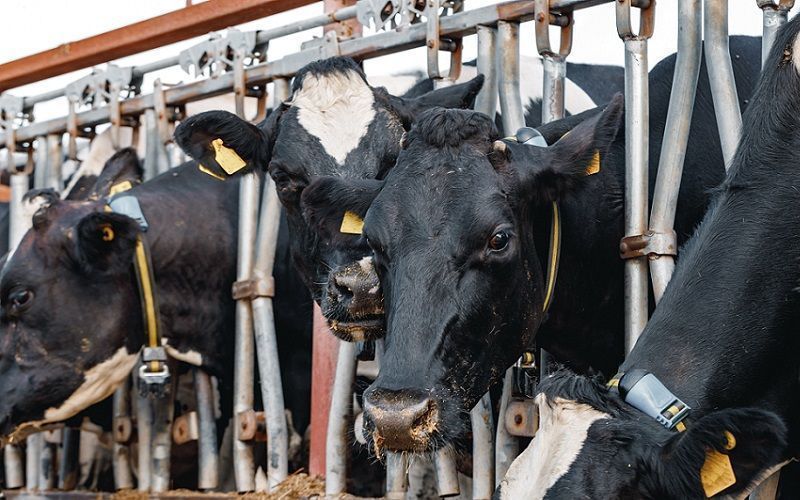Heightened Vigilance Urged as HPAI Strikes Dairy Cattle Across Five States in the U.S.
Recent reports from the U.S. Department of Agriculture have confirmed a concerning development: twelve cases of highly pathogenic avian influenza (HPAI) have emerged in dairy cattle across five states.

The affected states include Texas, Kansas, Michigan, New Mexico, and Idaho, with the latter reporting its first cases in Cassia County.
Fred Gingrich, DVM and executive director for the American Association of Bovine Practitioners (AABP), highlights that the virus detected in dairy cows mirrors the strain affecting the U.S. poultry industry since 2022, suggesting a potential link to wild migratory birds.
Amid uncertainties surrounding transmission, Gingrich emphasizes the imperative for robust biosecurity measures. The AABP, in collaboration with the National Milk Producers Federation, has issued guidelines urging dairy producers to minimize exposure risks, including restricting livestock contact with wild birds and isolating new animals on farms.
States such as Delaware, Idaho, Nebraska, Tennessee, and Utah have heightened biosecurity measures in response to the outbreaks, with Nebraska imposing restrictions on dairy cattle imports.
Despite the alarming situation, Gingrich offers reassurance that HPAI affects only a small fraction of dairy herds, with minimal mortality rates. Additionally, pasteurization effectively eliminates the virus, ensuring minimal risk to consumers.
Looking ahead, Gingrich advocates for close collaboration between producers, veterinarians, and relevant agencies to monitor and respond to symptoms promptly. He emphasizes the importance of transparency and proactive diagnostics in containing the spread of HPAI.
As the investigation unfolds, Gingrich encourages vigilance and underscores the support available from veterinary communities and organizations like AABP for reliable information and assistance.
Fred Gingrich, DVM and executive director for the American Association of Bovine Practitioners (AABP), highlights that the virus detected in dairy cows mirrors the strain affecting the U.S. poultry industry since 2022, suggesting a potential link to wild migratory birds.
Amid uncertainties surrounding transmission, Gingrich emphasizes the imperative for robust biosecurity measures. The AABP, in collaboration with the National Milk Producers Federation, has issued guidelines urging dairy producers to minimize exposure risks, including restricting livestock contact with wild birds and isolating new animals on farms.
States such as Delaware, Idaho, Nebraska, Tennessee, and Utah have heightened biosecurity measures in response to the outbreaks, with Nebraska imposing restrictions on dairy cattle imports.
Despite the alarming situation, Gingrich offers reassurance that HPAI affects only a small fraction of dairy herds, with minimal mortality rates. Additionally, pasteurization effectively eliminates the virus, ensuring minimal risk to consumers.
Looking ahead, Gingrich advocates for close collaboration between producers, veterinarians, and relevant agencies to monitor and respond to symptoms promptly. He emphasizes the importance of transparency and proactive diagnostics in containing the spread of HPAI.
As the investigation unfolds, Gingrich encourages vigilance and underscores the support available from veterinary communities and organizations like AABP for reliable information and assistance.
Key News of the Week











